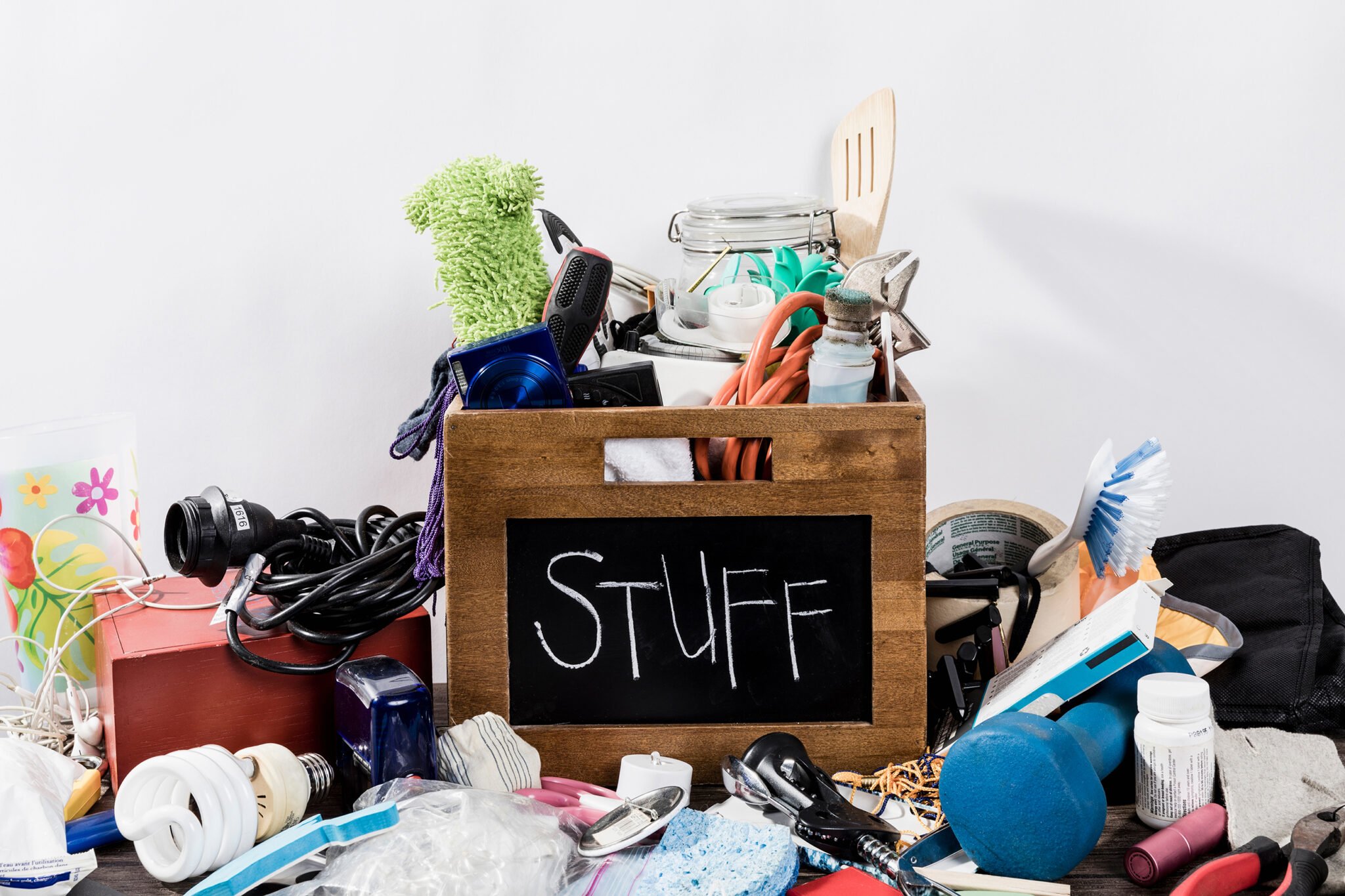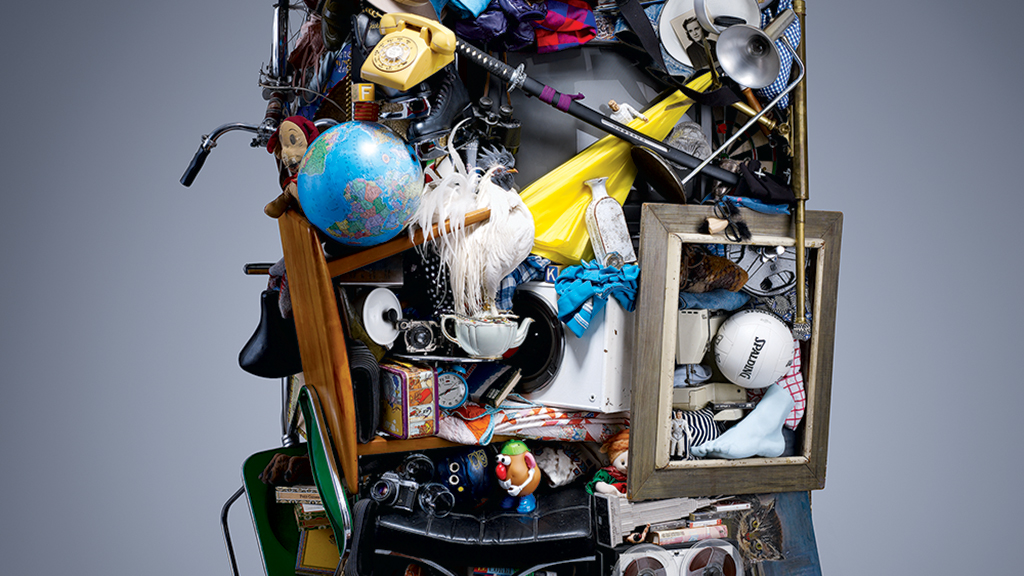Contents
Small Items
![]()
Jewelry/accessories. For those who want to donate, Goodwill and other nonprofits such as Dress for Success accept jewelry and accessories—as do some high-school theater departments. To make a little money, try consignment, or sell online through Poshmark or eBay. For higher-end items, try a local jewelry store—Charles Schwartz & Son buys fine jewelry, including antique, vintage, designer, diamond, and gemstones; and the Tysons Watch & Jewelry Exchange buys jewelry, watches, and designer handbags.
Books. Free little libraries in and around your community are great places to leave books you’re ready to pass along, but most public libraries also accept donations—some go into circulation, others into fundraising sales. Many of the library systems we checked with also take CDs and DVDs, but not encyclopedias or magazines. (For those, see our section on School-Friendly Kid and Craft Stuff.) Martha’s Table accepts children’s books, while secondhand shops such as Capitol Hill Books take used books. Think you might have something valuable in your collection? Second Story Books’ Rockville location hosts a free appraisal event the last Saturday of each month.
Makeup and toiletries. SOME (So Others Might Eat), Samaritan Ministry of Greater Washington, N Street Village, and many other local nonprofits that serve people experiencing homelessness and others in need accept unopened toiletries of varying sizes.
Reusable water bottles. Maybe you tried a few different styles and are now loyal to one. The DC organization SOME (So Others Might Eat) currently has reusable water bottles on its donation wish list.
Corks. Not sure what to do with wine corks you’ve collected? You can drop them off (natural cork only) at the recycling center of any MOM’s Organic Market.
Other small new or gently used items. Most other things are easily donated to the many nonprofit organizations that accept “in kind” donations, but we also recommend asking Facebook groups or your PTA—some schools host holiday bazaars, supported by local donations, that offer students a chance to “shop” for free gifts for loved ones during the holidays. Alternatively, Buy Nothing and Freecycle groups are excellent places to offload items—with bonus points for being neighborly.
Back to Top
Big Items
![]()
Have items in good condition to donate? Skip to our “9 Places That Will Take Your Stuff” chart to find organizations that will either pick up or accept drop-offs, including oversize goods. Have something that’s not in great condition, or looking for cash? Here’s what to do.
Furniture. Craigslist and Facebook Marketplace are prime places to sell nicer furniture. If it’s not nice enough to sell, you might be surprised how many people on Freecycle or Buy Nothing groups are eager to take old or damaged stuff to rehab. If your item doesn’t get any interest, furniture can go out with bulk trash pretty much everywhere—though you might consider putting a “curb alert” on your social-media channels for one last attempt at reuse.
Mattresses. Used ones are a tough sell, though local Facebook groups are worth a try. In DC, you can take old mattresses to the Fort Totten Transfer Station. Or, if your trash is collected by the Department of Public Works and not a private company, mattresses—in plastic (you can buy a cover online)—can be scheduled for pickup. Beyond DC, it depends on your city or county. In Prince George’s County and Alexandria, plastic-wrapped mattresses can go out on your usual collection day; in Arlington and Fairfax City, you can also put them out with the trash, no plastic required. In Fairfax and Montgomery counties, it’s trickier because trash-service providers vary. If the county collects your trash, you can schedule a bulk pickup online or by phone—if a private company does it, you have to contact it directly. For more info, Fairfax County residents can call 703-802-3322; Montgomery County residents can call 311.
Televisions. Craigslist and Facebook Marketplace are probably the best bets for selling working TVs (most police stations are available as neutral meeting spots, often with designated “transaction safe” or “safe exchange” zones in their parking lot or lobby); otherwise, you’ll likely have luck on Buy Nothing or Freecycle. For TVs you’d rather ditch, it gets tricky. Check your city or county’s public-works department for the procedure and any applicable fees: In DC, TVs are prohibited from bulk trash pickups; residents are to take them to waste-collection events (held quarterly). Prince George’s County will pick up flat-screen TVs curbside by appointment (schedule on the PGC311 app), but older-style TVs need to be dropped off at a designated electronics recycling center or event. In Arlington, you can go online or call 703-228-5000 to schedule a pickup or take the TV to an Arlington Environmental Collection and Recycling event (fees may apply); Alexandria has a Household Hazardous Waste & Electronics Collection Center; in Fairfax, take TVs to either the I-66 Transfer Station or the I-95 Landfill Complex for recycling. Another option: Many electronics retailers, such as Best Buy, offer recycling programs—but they come with some limitations and, in certain cases, fees.
Appliances. Most cities and counties will take broken or damaged appliances through bulk trash and other curbside collections (sometimes for a fee). For working appliances, check with your utility company—many will pick them up and offer credits or other financial incentives to do so. Alternatively, the EPA’s Responsible Appliance Disposal program has partners across the country.
Bikes. The Vélocity Bicycle Cooperative in Alexandria—which helps foster an inclusive biking community and get bikes to folks in need—will take your wheels in any condition. They repair the ones they can, strip others for parts, and donate unusable pieces to artists who will use them. Bikes for the World, which delivers bicycles to low-income people in developing countries, has drop-off locations all over DC, Maryland, and Virginia and will take bikes in most conditions. (Check the website for exceptions.)
Construction materials. The Metropolitan Washington Council of Governments has a list of drop-off locations in DC, Maryland, and Virginia for construction materials, from bricks to carpet padding to old doors. Visit mwcog.org and search for “Builders Recycling Guide.”
Back to Top
Electronics
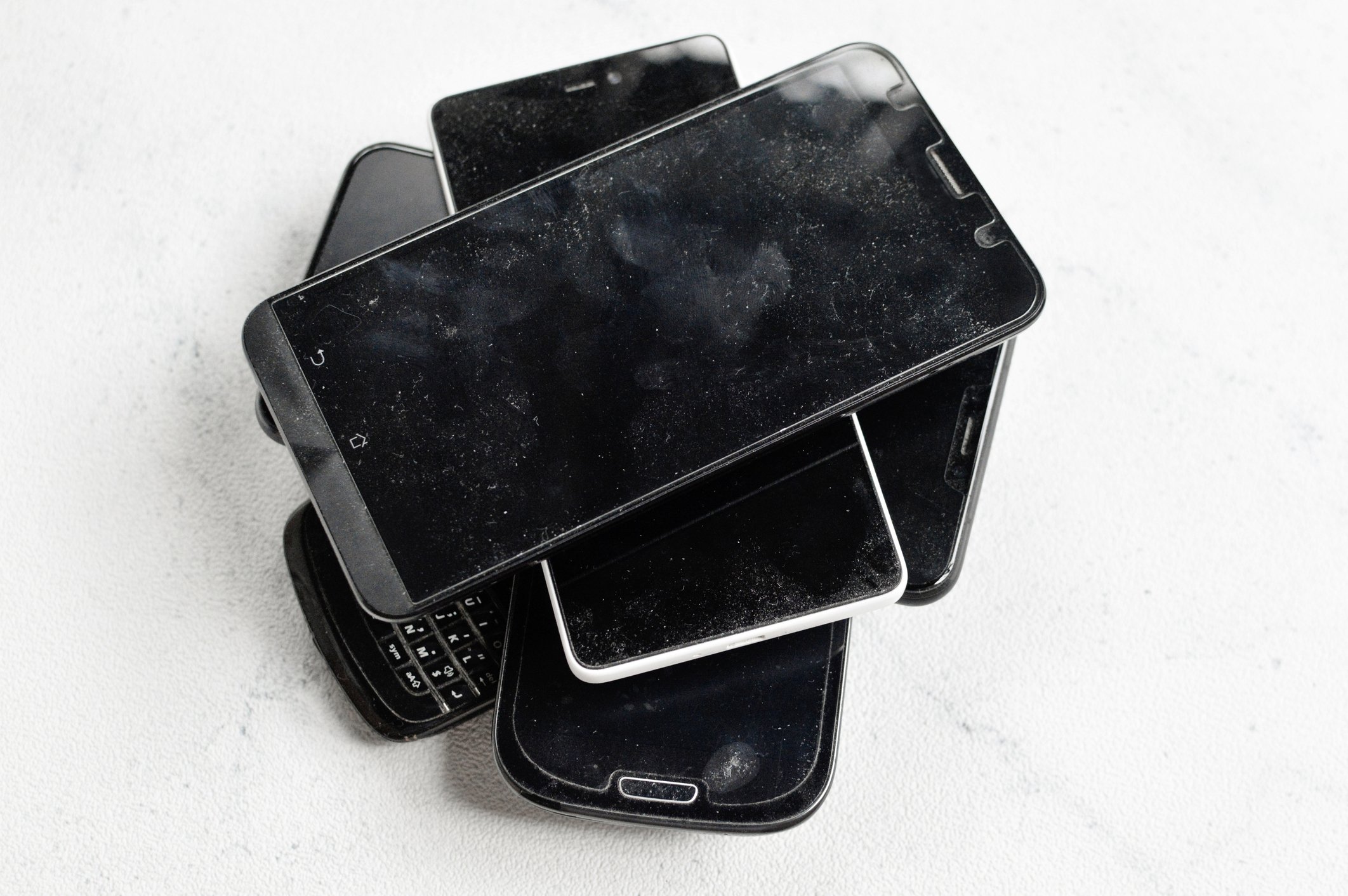
For cables and chargers, camera equipment, cell phones, tablets, and other unwanted tech, most municipalities have “eCycling” programs. Cell Phones for Soldiers takes phones, tablets, chargers, and more—in any condition—with dozens of drop-off locations in the Washington area. MOM’s Organic Market will accept old cell phones and tablets. If you’ve got items to sell, there are a few other options: The easiest way to get credit for phones, tablets, and computers is trade-in programs such as those offered by Xfinity and Verizon, as well as retailers including Apple, Amazon, and Best Buy. Other sites like eBay and Swappa require a little more patience to create listings and sell things, but they may earn you more cash.
Back to Top
Compostable Items
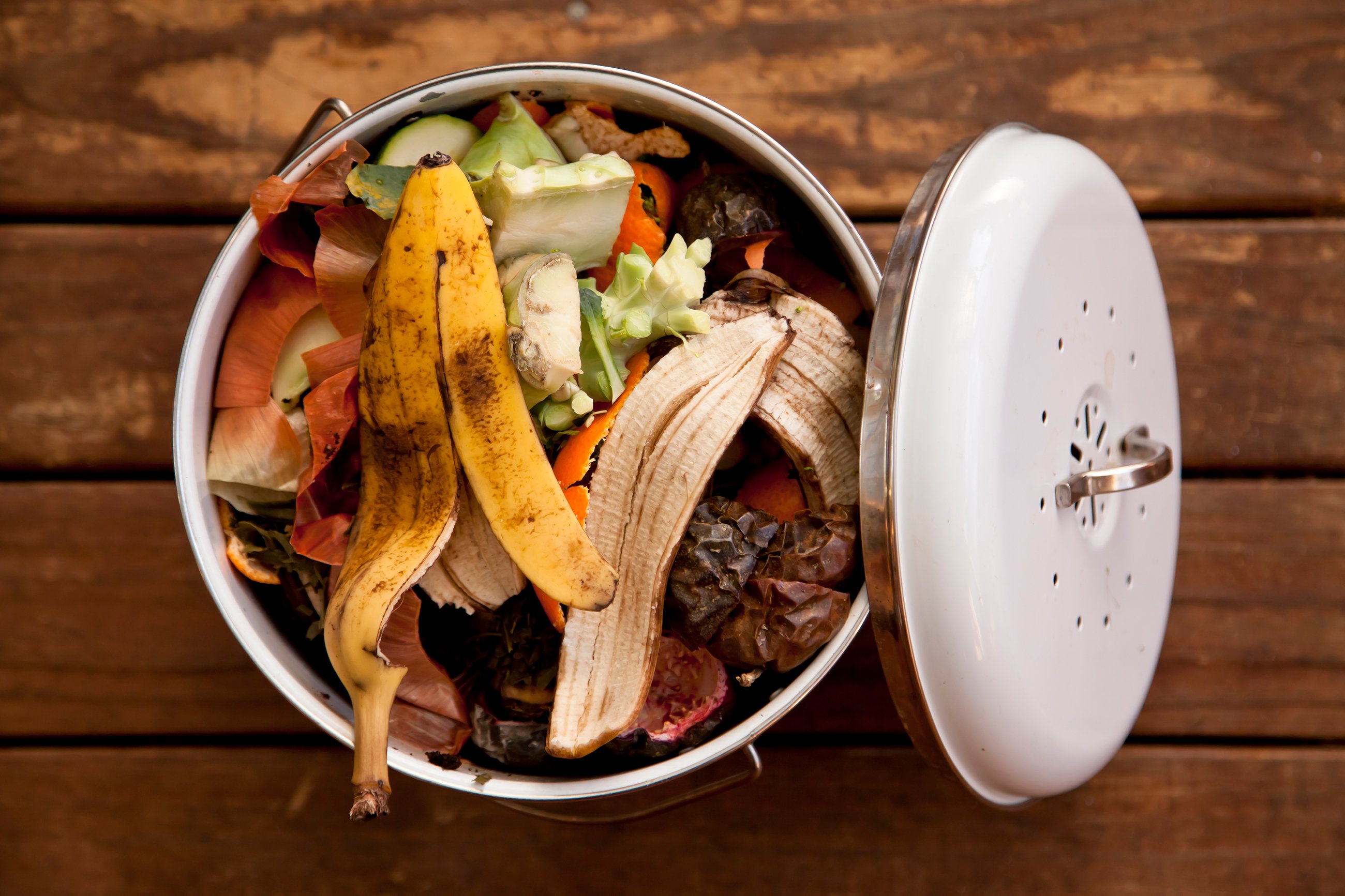
Designated farmers markets in Alexandria and Fairfax County also accept food waste, as do drop-off locations through Montgomery County’s Department of Environmental Waste. Arlington County has public compost bins, and Prince George’s offers pickup for some residents. DC accepts such waste at designated farmers markets as well as in new 24/7 Food Waste Smart Bins throughout the city.
Back to Top
Clothing
Purging unwanted clothes from your closet can feel freeing–until you try to figure out where it should all go. Here, a handy chart.
Items You Want to Donate
Dress for Success, which helps outfit under- or unemployed women looking for jobs, takes women’s professional attire, and Martha’s Table accepts men’s and women’s professional clothing, plus children’s, for its free community boutique, Martha’s Outfitters. Check your Buy Nothing, neighborhood, or parenting groups on Facebook to either give clothing away directly or connect with someone with ties to local families in need or a community group that could use the donations. Many stores with trade-in and recycling programs take old apparel in exchange for a discount, including Madewell, H&M, American Eagle, Reformation, Carter’s, and Marine Layer. Finally, check our chart of “9 Places That Will Take Your Stuff.”
Items You Want to Sell
There are many options for selling clothes. Poshmark is one of the most popular resale apps, and eBay is a good bet, too. You can also send a bag of stuff to the online secondhand shop ThredUp, which will sell your items for you. For children’s clothing, Wee Sale holds massive consignment sales in Prince George’s and Anne Arundel counties–consignors can earn a hefty percentage. (There’s a She Sale for women’s clothing, too.) Finally, consider consignment. Here are some favorites.
Top Consignment Shops
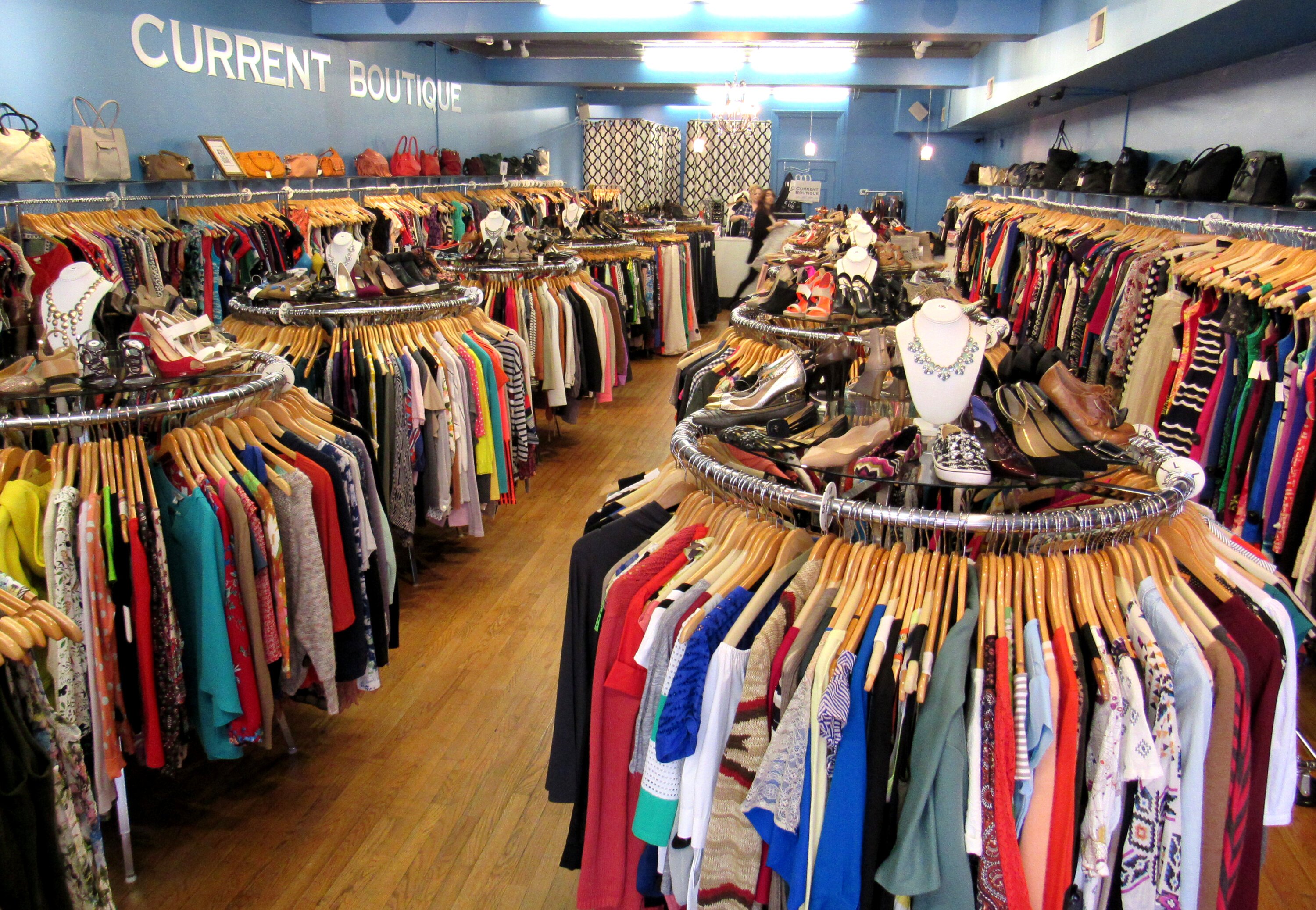
- Clothes Encounters DC. Accepts high-end women’s clothing and accessories, by appointment only.
- Current Boutique. Takes high-end women’s clothing and accessories, with drop-off (no appointment needed), mail-in, and pickup options available.
- Ella Rue. High-end women’s clothing and accessories, with drop-off (by appointment), mail-in, and pickup available.
- New to You. High-end and contemporary men’s and women’s clothing and accessories, by appointment only.
- Reddz Trading. Buys select designer and name-brand women’s and men’s clothing and accessories upfront; no appointment needed.
- Secondi. High-end women’s clothing and accessories, by appointment only.
Clothing in ripped, stained, or otherwise unwearable condition
Ripped, stained–these generally fall under the category of “textile recycling.” You can take them to H&M for its recycling program (the store will give you a coupon toward new duds); or donate them to Goodwill or Salvation Army, where unwearable clothes are recycled. Likewise, Madewell accepts denim from all brands, in all conditions–even scraps–which you can drop off in the store or mail in by requesting a kit online. Levi’s and Patagonia will take unwearable clothing of their own brand.
Back to Top
Cars
![]()
A private sale, trade-in, or transaction through Carmax or Carvana not what you’re after? Many organizations accept cars, boats, and other vehicles as donations, and they’ll tow yours for free, running or not, as long as it has an engine–plus you’ll get the tax deduction. Here are a few.
- American Red Cross
- AMVETS National Service Foundation
- Chesapeake Bay Foundation
- Habitat for Humanity
- Humane Rescue Alliance
- Make-A-Wish Foundation’s Wheels for Wishes
- Maryland School for the Blind
- Purple Heart Foundation
- Ronald McDonald House
- Salvation Army
- Vehicles for Veterans
- WAMU 88.5 (NPR)
Back to Top
School-Friendly Kid and Craft Stuff

Toys. While plenty of organizations will take toys in good condition, broken ones can be recycled through Second Chance Toys’ partnership with TerraCycle Recycling. As for those trinket-like items that come in Happy Meals, goody bags, and the arcade, you can keep them out of the landfill, too. Our tip: Set them aside and periodically offer a free bag of them in local Facebook and Buy Nothing groups—teachers who use trinkets as incentives often snatch them up.
Crafts, office, and art supplies. This is another category of things that teachers often look for on Buy Nothing groups, but schools and Scout troops are also worth a call. More official donation channels include the UpCycle Creative Reuse Center and the Art League, both in Alexandria; the Takoma Art Library in Takoma Park; Art Works Now in Hyattsville; and Project Create in DC.
Live in Montgomery County?
MoCo residents can take almost any unwanted item to the Shady Grove Processing Facility and Transfer Station, where its exceptionally robust recycle/reuse program means even more can be kept from landfills. In addition to typical “blue bin” recycling, it accepts textiles, books, building materials, appliances, mattresses, some plastic wrap and bags, bikes, electronics, tires, scrap metal, and more, all to be recycled or donated to county-based nonprofits.
Back to Top
Hazardous Items
![]()
Batteries. You may not think twice about tossing old batteries in the trash—but not so fast! DC’s 2023 battery-disposal ban requires that all batteries—yes, even standard, single-use AAA alkaline—be dropped off at either a collection event for hazardous household waste (the only place you can dispose of a car battery, by the way) or a participating Call2Recycle drop-off location, which includes many Home Depots and many hardware stores. The same rules apply for Montgomery and Prince George’s counties. In most other Maryland and Virginia counties, standard (non-rechargeable, lithium-free) alkaline batteries can be thrown in the trash, but any batteries that are rechargeable or “button” style, or that contain lithium (they look like standard batteries but say “lithium” on the label), must be discarded either as hazardous waste or at a participating Call2Recycle drop-off location.
Medicine. The preferred method for disposing of any medication, whether expired over-the-counter items or unused prescriptions, is through a take-back program—you can find deposit boxes at many pharmacies, including most CVS and Walgreens locations. If you can’t get to one, the FDA and DEA say to mix the medications with inedible materials such as coffee grounds or kitty litter in a container and toss it in the trash. Flushing medication down the toilet is highly discouraged (it’s an environmental hazard), with the exception of medications on the FDA’s very short “flush list”, for cases in which a take-back option isn’t available.
Paint. In most places, dried latex and water-based paint can be thrown in the regular trash, but oil-based is considered hazardous waste. PaintCare, a nonprofit that works to recycle paint, has an expansive list of places that will take all of your unwanted paint for recycling in DC (a PaintCare partner), as well as disposal information for residents of Maryland and Virginia (non-PaintCare states).
Other dangerous stuff. Things like antifreeze, old fluorescent bulbs, expired fire extinguishers, and in some places even smoke detectors should not go in the trash. Check with your city or county for details about hazardous waste.
Back to Top
Confidential Information
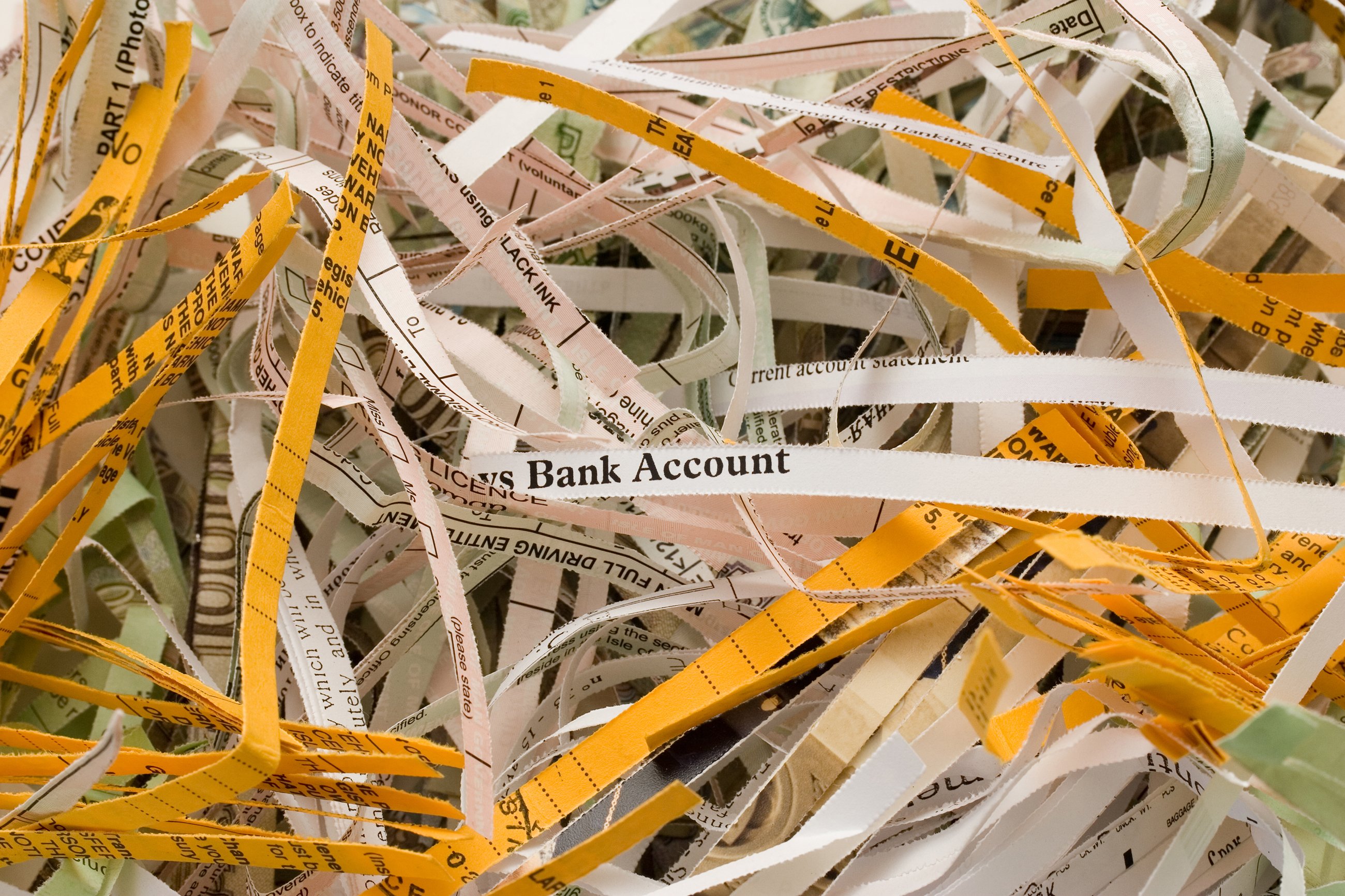
Have boxes and boxes of unneeded documents? Most local governments offer frequent shredding opportunities, including DC, which has shredding services regularly at Special Waste Collection events. Can’t wait? Various UPS stores also offer shredding for a fee, as do many Ace Hardware stores and Staples, which offers both drop-off and pickup shredding services.
Back to Top
Valuable Items
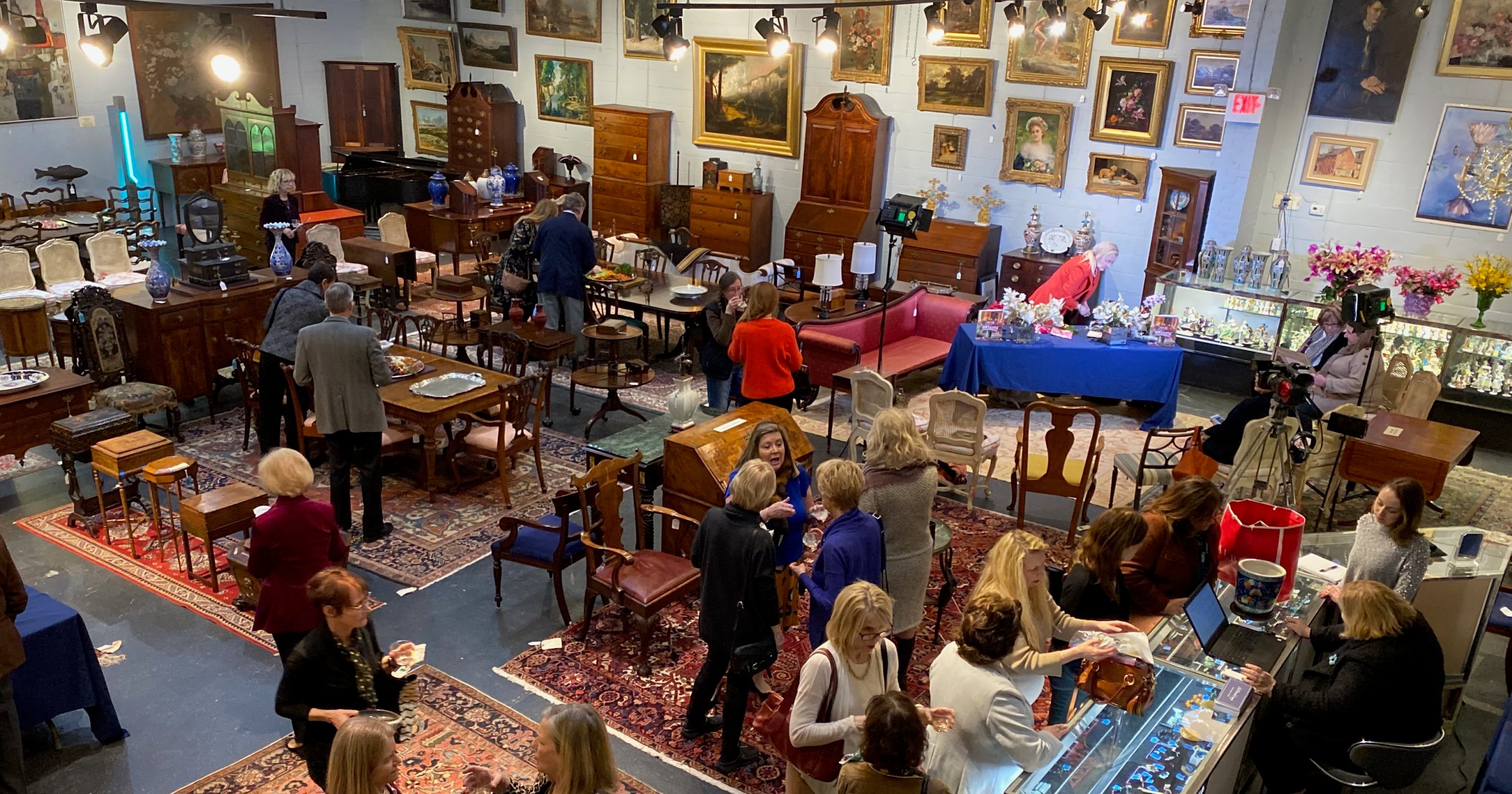
Collected or inherited something that might be especially valuable? The following local companies, each with great online reviews, will appraise and sell them for you.
Alexandria Auctions. This auction house offers free consultations to help determine the value of your items and takes pieces on consignment.
Four Sales. The Alexandria estate-sale company also offers appraisal and consignment for individual items.
Orion’s Attic. In addition to appraisals and limited consignment, this Silver Spring company will sometimes buy some stuff upfront—but it says its most popular service is one in which the company does the home clean-out for you, selling what it can, donating other stuff, and hauling away the trash.
The Potomack Company. This Alexandria auction house offers a free evaluation for potential auction-consignment items.
Back to Top
Where to Donate Your Stuff
A Wider Circle
Does It Offer Pickup Or Do You Drop Off? Both. Smaller items should be dropped off, but it will schedule a pickup of especially desirable furniture.
What It Accepts. Home goods; child and baby items; professional clothing and accessories; linens; personal-care, cleaning, and toiletry products; furniture in good condition.
Central Union Mission
Does It Offer Pickup Or Do You Drop Off? Drop-off only
What It Accepts. Home goods and kitchen items; men’s, women’s, and children’s shoes and accessories in good condition; towels and linens, including sheets and tablecloths; unused toiletries; child and baby items; food; school/office supplies; some working electronics.
Community Forklift
Does It Offer Pickup Or Do You Drop Off? Both, though pickups are limited.
What It Accepts. Construction materials (countertops, cabinets, bathtubs, etc.); clean, working appliances; lumber; unopened boxes of tile; landscaping materials; and more. Think things in otherwise good condition that you might swap out or have left over when you renovate a room. Plus, some home goods.
FurnishHope DC
Does It Offer Pickup Or Do You Drop Off? Pickup within 20 miles of DC
What It Accepts. Gently used, stain-free furniture and some home goods, including kitchenware, small appliances, and lamps.
Goodwill
Does It Offer Pickup Or Do You Drop Off? Drop-off is most common, but you can pay a fee to get a pickup.
What It Accepts. Clothing, household items, electronics, good-condition furniture, toys. Does not take mattresses; furniture or exercise equipment weighing more than 50 pounds; large appliances; building materials; or non-toy baby and children’s items such as bassinets, strollers, and highchairs.
GreenDrop
Does It Offer Pickup Or Do You Drop Off? Both
What It Accepts. Clothing and shoes, electronics, toys, exercise equipment, sporting goods, housewares, small appliances, furniture, books, and more.
Mary’s Center
Does It Offer Pickup Or Do You Drop Off? Pickup only
What It Accepts. New and gently used clothing, accessories, infant items, kitchen and home goods, small furniture, seasonal items, toys, games, instruments, sporting goods, and more.
Salvation Army
Does It Offer Pickup Or Do You Drop Off? Both, though pickup is limited.
What It Accepts. Everything from building materials–including old doors, windows, and mantels–to big appliances and fixtures; mattresses; furniture; lawn and garden equipment; and more.
Second Chance (Baltimore)
Does It Offer Pickup Or Do You Drop Off? Both
What It Accepts. Everything from building materials–including old doors, windows, and mantels–to big appliances and fixtures; mattresses; furniture; lawn and garden equipment; and more.
Small Items
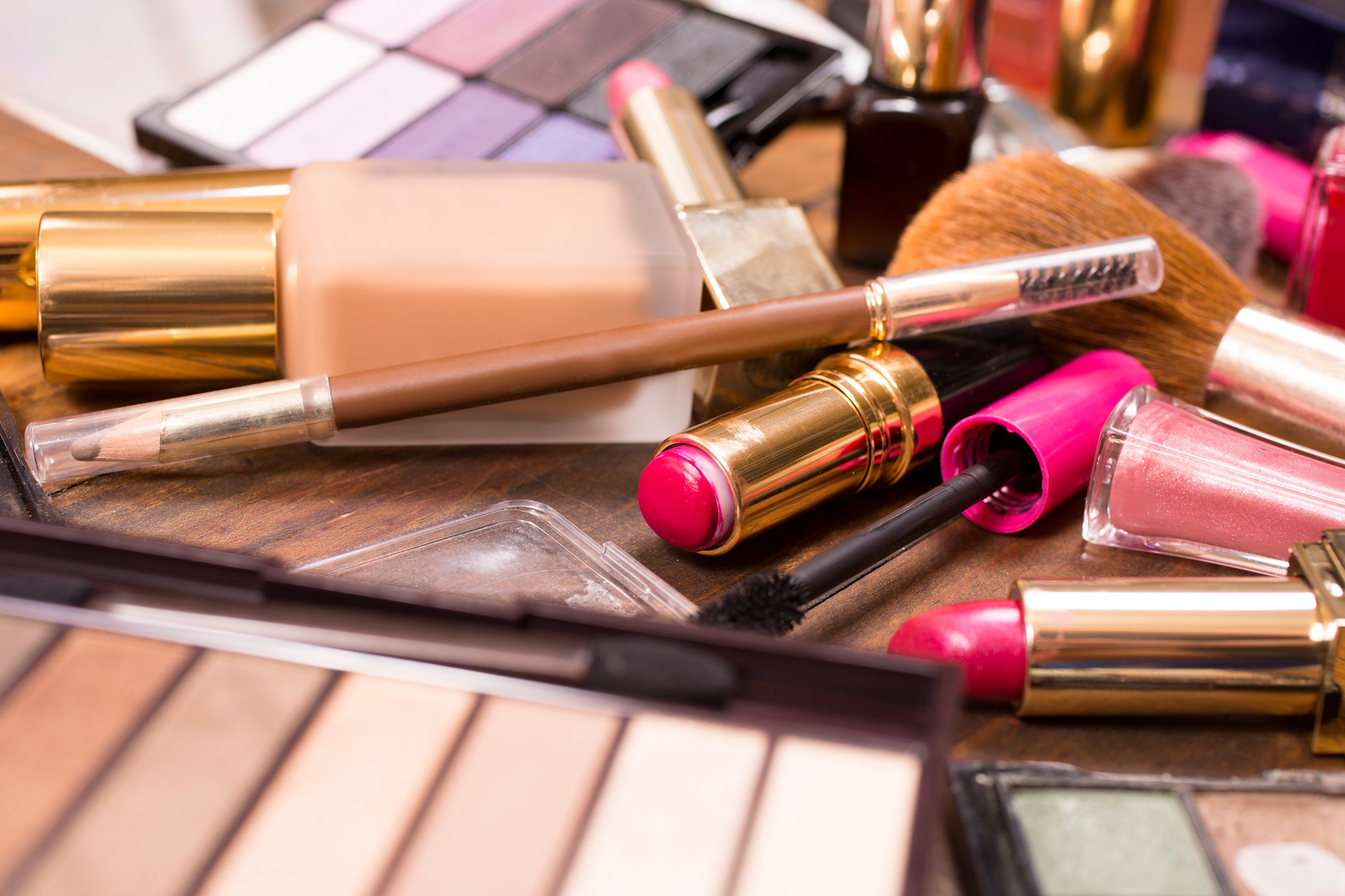
Jewelry/accessories. For those who want to donate, Goodwill and other nonprofits such as Dress for Success accept jewelry and accessories—as do some high-school theater departments. To make a little money, try consignment, or sell online through Poshmark or eBay. For higher-end items, try a local jewelry store—Charles Schwartz & Son buys fine jewelry, including antique, vintage, designer, diamond, and gemstones; and the Tysons Watch & Jewelry Exchange buys jewelry, watches, and designer handbags.
![]()
Books. Free little libraries in and around your community are great places to leave books you’re ready to pass along, but most public libraries also accept donations—some go into circulation, others into fundraising sales. Many of the library systems we checked with also take CDs and DVDs, but not encyclopedias or magazines. (For those, see our section on School-Friendly Kid and Craft Stuff.) Martha’s Table accepts children’s books, while secondhand shops such as Capitol Hill Books take used books. Think you might have something valuable in your collection? Second Story Books’ Rockville location hosts a free appraisal event the last Saturday of each month.
Makeup and toiletries. SOME (So Others Might Eat), Samaritan Ministry of Greater Washington, N Street Village, and many other local nonprofits that serve people experiencing homelessness and others in need accept unopened toiletries of varying sizes.
Reusable water bottles. Maybe you tried a few different styles and are now loyal to one. The DC organization SOME (So Others Might Eat) currently has reusable water bottles on its donation wish list.
Corks. Not sure what to do with wine corks you’ve collected? You can drop them off (natural cork only) at the recycling center of any MOM’s Organic Market.
Other small new or gently used items. Most other things are easily donated to the many nonprofit organizations that accept “in kind” donations, but we also recommend asking Facebook groups or your PTA—some schools host holiday bazaars, supported by local donations, that offer students a chance to “shop” for free gifts for loved ones during the holidays. Alternatively, Buy Nothing and Freecycle groups are excellent places to offload items—with bonus points for being neighborly.
Back to Top
Big Items
![]()
Have items in good condition to donate? Skip to our “9 Places That Will Take Your Stuff” chart to find organizations that will either pick up or accept drop-offs, including oversize goods. Have something that’s not in great condition, or looking for cash? Here’s what to do.
Furniture. Craigslist and Facebook Marketplace are prime places to sell nicer furniture. If it’s not nice enough to sell, you might be surprised how many people on Freecycle or Buy Nothing groups are eager to take old or damaged stuff to rehab. If your item doesn’t get any interest, furniture can go out with bulk trash pretty much everywhere—though you might consider putting a “curb alert” on your social-media channels for one last attempt at reuse.
Mattresses. Used ones are a tough sell, though local Facebook groups are worth a try. In DC, you can take old mattresses to the Fort Totten Transfer Station. Or, if your trash is collected by the Department of Public Works and not a private company, mattresses—in plastic (you can buy a cover online)—can be scheduled for pickup. Beyond DC, it depends on your city or county. In Prince George’s County and Alexandria, plastic-wrapped mattresses can go out on your usual collection day; in Arlington and Fairfax City, you can also put them out with the trash, no plastic required. In Fairfax and Montgomery counties, it’s trickier because trash-service providers vary. If the county collects your trash, you can schedule a bulk pickup online or by phone—if a private company does it, you have to contact it directly. For more info, Fairfax County residents can call 703-802-3322; Montgomery County residents can call 311.
Televisions. Craigslist and Facebook Marketplace are probably the best bets for selling working TVs (most police stations are available as neutral meeting spots, often with designated “transaction safe” or “safe exchange” zones in their parking lot or lobby); otherwise, you’ll likely have luck on Buy Nothing or Freecycle. For TVs you’d rather ditch, it gets tricky. Check your city or county’s public-works department for the procedure and any applicable fees: In DC, TVs are prohibited from bulk trash pickups; residents are to take them to waste-collection events (held quarterly). Prince George’s County will pick up flat-screen TVs curbside by appointment (schedule on the PGC311 app), but older-style TVs need to be dropped off at a designated electronics recycling center or event. In Arlington, you can go online or call 703-228-5000 to schedule a pickup or take the TV to an Arlington Environmental Collection and Recycling event (fees may apply); Alexandria has a Household Hazardous Waste & Electronics Collection Center; in Fairfax, take TVs to either the I-66 Transfer Station or the I-95 Landfill Complex for recycling. Another option: Many electronics retailers, such as Best Buy, offer recycling programs—but they come with some limitations and, in certain cases, fees.
Appliances. Most cities and counties will take broken or damaged appliances through bulk trash and other curbside collections (sometimes for a fee). For working appliances, check with your utility company—many will pick them up and offer credits or other financial incentives to do so. Alternatively, the EPA’s Responsible Appliance Disposal program has partners across the country.
Bikes. The Vélocity Bicycle Cooperative in Alexandria—which helps foster an inclusive biking community and get bikes to folks in need—will take your wheels in any condition. They repair the ones they can, strip others for parts, and donate unusable pieces to artists who will use them. Bikes for the World, which delivers bicycles to low-income people in developing countries, has drop-off locations all over DC, Maryland, and Virginia and will take bikes in most conditions. (Check the website for exceptions.)
Construction materials. The Metropolitan Washington Council of Governments has a list of drop-off locations in DC, Maryland, and Virginia for construction materials, from bricks to carpet padding to old doors. Visit mwcog.org and search for “Builders Recycling Guide.”
Back to Top
Electronics

For cables and chargers, camera equipment, cell phones, tablets, and other unwanted tech, most municipalities have “eCycling” programs. Cell Phones for Soldiers takes phones, tablets, chargers, and more—in any condition—with dozens of drop-off locations in the Washington area. MOM’s Organic Market will accept old cell phones and tablets. If you’ve got items to sell, there are a few other options: The easiest way to get credit for phones, tablets, and computers is trade-in programs such as those offered by Xfinity and Verizon, as well as retailers including Apple, Amazon, and Best Buy. Other sites like eBay and Swappa require a little more patience to create listings and sell things, but they may earn you more cash.
Back to Top
Compostable Items

Designated farmers markets in Alexandria and Fairfax County also accept food waste, as do drop-off locations through Montgomery County’s Department of Environmental Waste. Arlington County has public compost bins, and Prince George’s offers pickup for some residents. DC accepts such waste at designated farmers markets as well as in new 24/7 Food Waste Smart Bins throughout the city.
Back to Top
Clothing
Purging unwanted clothes from your closet can feel freeing–until you try to figure out where it should all go. Here, a handy chart.

Items You Want Donate
Dress for Success, which helps outfit under- or unemployed women looking for jobs, takes women’s professional attire, and Martha’s Table accepts men’s and women’s professional clothing, plus children’s, for its free community boutique, Martha’s Outfitters. Check your Buy Nothing, neighborhood, or parenting groups on Facebook to either give clothing away directly or connect with someone with ties to local families in need or a community group that could use the donations. Many stores with trade-in and recycling programs take old apparel in exchange for a discount, including Madewell, H&M, American Eagle, Reformation, Carter’s, and Marine Layer. Finally, check our chart of “9 Places That Will Take Your Stuff.”
Items You Want to Sell
There are many options for selling clothes. Poshmark is one of the most popular resale apps, and eBay is a good bet, too. You can also send a bag of stuff to the online secondhand shop ThredUp, which will sell your items for you. For children’s clothing, Wee Sale holds massive consignment sales in Prince George’s and Anne Arundel counties–consignors can earn a hefty percentage. (There’s a She Sale for women’s clothing, too.) Finally, consider consignment. Here are some favorites.
Top Consignment Shops
- Clothes Encounters DC. Accepts high-end women’s clothing and accessories, by appointment only.
- Current Boutique. Takes high-end women’s clothing and accessories, with drop-off (no appointment needed), mail-in, and pickup options available.
- Ella Rue. High-end women’s clothing and accessories, with drop-off (by appointment), mail-in, and pickup available.
- New to You. High-end and contemporary men’s and women’s clothing and accessories, by appointment only.
- Reddz Trading. Buys select designer and name-brand women’s and men’s clothing and accessories upfront; no appointment needed.
- Secondi. High-end women’s clothing and accessories, by appointment only.
Clothing in Ripped, Stained, or Otherwise Unwearable Condition
Ripped, stained–these generally fall under the category of “textile recycling.” You can take them to H&M for its recycling program (the store will give you a coupon toward new duds); or donate them to Goodwill or Salvation Army, where unwearable clothes are recycled. Likewise, Madewell accepts denim from all brands, in all conditions–even scraps–which you can drop off in the store or mail in by requesting a kit online. Levi’s and Patagonia will take unwearable clothing of their own brand.
Back to Top
Cars
![]()
A private sale, trade-in, or transaction through Carmax or Carvana not what you’re after? Many organizations accept cars, boats, and other vehicles as donations, and they’ll tow yours for free, running or not, as long as it has an engine–plus you’ll get the tax deduction. Here are a few.
- American Red Cross
- AMVETS National Service Foundation
- Chesapeake Bay Foundation
- Habitat for Humanity
- Humane Rescue Alliance
- Make-A-Wish Foundation’s Wheels for Wishes
- Maryland School for the Blind
- Purple Heart Foundation
- Ronald McDonald House
- Salvation Army
- Vehicles for Veterans
- WAMU 88.5 (NPR)
Back to Top
School-Friendly Kid and Craft Stuff

Toys. While plenty of organizations will take toys in good condition, broken ones can be recycled through Second Chance Toys’ partnership with TerraCycle Recycling. As for those trinket-like items that come in Happy Meals, goody bags, and the arcade, you can keep them out of the landfill, too. Our tip: Set them aside and periodically offer a free bag of them in local Facebook and Buy Nothing groups—teachers who use trinkets as incentives often snatch them up.
Crafts, office, and art supplies. This is another category of things that teachers often look for on Buy Nothing groups, but schools and Scout troops are also worth a call. More official donation channels include the UpCycle Creative Reuse Center and the Art League, both in Alexandria; the Takoma Art Library in Takoma Park; Art Works Now in Hyattsville; and Project Create in DC.
Live in Montgomery County?
MoCo residents can take almost any unwanted item to the Shady Grove Processing Facility and Transfer Station, where its exceptionally robust recycle/reuse program means even more can be kept from landfills. In addition to typical “blue bin” recycling, it accepts textiles, books, building materials, appliances, mattresses, some plastic wrap and bags, bikes, electronics, tires, scrap metal, and more, all to be recycled or donated to county-based nonprofits.
Back to Top
Hazardous Items
![]()
Batteries. You may not think twice about tossing old batteries in the trash—but not so fast! DC’s 2023 battery-disposal ban requires that all batteries—yes, even standard, single-use AAA alkaline—be dropped off at either a collection event for hazardous household waste (the only place you can dispose of a car battery, by the way) or a participating Call2Recycle drop-off location, which includes many Home Depots and many hardware stores. The same rules apply for Montgomery and Prince George’s counties. In most other Maryland and Virginia counties, standard (non-rechargeable, lithium-free) alkaline batteries can be thrown in the trash, but any batteries that are rechargeable or “button” style, or that contain lithium (they look like standard batteries but say “lithium” on the label), must be discarded either as hazardous waste or at a participating Call2Recycle drop-off location.
Medicine. The preferred method for disposing of any medication, whether expired over-the-counter items or unused prescriptions, is through a take-back program—you can find deposit boxes at many pharmacies, including most CVS and Walgreens locations. If you can’t get to one, the FDA and DEA say to mix the medications with inedible materials such as coffee grounds or kitty litter in a container and toss it in the trash. Flushing medication down the toilet is highly discouraged (it’s an environmental hazard), with the exception of medications on the FDA’s very short “flush list”, for cases in which a take-back option isn’t available.
Paint. In most places, dried latex and water-based paint can be thrown in the regular trash, but oil-based is considered hazardous waste. PaintCare, a nonprofit that works to recycle paint, has an expansive list of places that will take all of your unwanted paint for recycling in DC (a PaintCare partner), as well as disposal information for residents of Maryland and Virginia (non-PaintCare states).
Other dangerous stuff. Things like antifreeze, old fluorescent bulbs, expired fire extinguishers, and in some places even smoke detectors should not go in the trash. Check with your city or county for details about hazardous waste.
Back to Top
Confidential Information

Have boxes and boxes of unneeded documents? Most local governments offer frequent shredding opportunities, including DC, which has shredding services regularly at Special Waste Collection events. Can’t wait? Various UPS stores also offer shredding for a fee, as do many Ace Hardware stores and Staples, which offers both drop-off and pickup shredding services.
Back to Top
Valuable Items

Collected or inherited something that might be especially valuable? The following local companies, each with great online reviews, will appraise and sell them for you.
Alexandria Auctions. This auction house offers free consultations to help determine the value of your items and takes pieces on consignment.
Four Sales. The Alexandria estate-sale company also offers appraisal and consignment for individual items.
Orion’s Attic. In addition to appraisals and limited consignment, this Silver Spring company will sometimes buy some stuff upfront—but it says its most popular service is one in which the company does the home clean-out for you, selling what it can, donating other stuff, and hauling away the trash.
The Potomack Company. This Alexandria auction house offers a free evaluation for potential auction-consignment items.
Back to Top
Where to Donate Your Stuff
Both. Smaller items should be dropped off, but it will schedule a pickup of especially desirable furniture.
Home goods; child and baby items; professional clothing and accessories; linens; personal-care, cleaning, and toiletry products; furniture in good condition.
Drop-off only
Home goods and kitchen items; men’s, women’s, and children’s shoes and accessories in good condition; towels and linens, including sheets and tablecloths; unused toiletries; child and baby items; food; school/office supplies; some working electronics.
Both, though pickups are limited.
Construction materials (countertops, cabinets, bathtubs, etc.); clean, working appliances; lumber; unopened boxes of tile; landscaping materials; and more. Think things in otherwise good condition that you might swap out or have left over when you renovate a room. Plus, some home goods.
Pickup within 20 miles of DC
Gently used, stain-free furniture and some home goods, including kitchenware, small appliances, and lamps.
Drop-off is most common, but you can pay a fee to get a pickup.
Clothing, household items, electronics, good-condition furniture, toys. Does not take mattresses; furniture or exercise equipment weighing more than 50 pounds; large appliances; building materials; or non-toy baby and children’s items such as bassinets, strollers, and highchairs.
Both
Clothing and shoes, electronics, toys, exercise equipment, sporting goods, housewares, small appliances, furniture, books, and more.
Pickup only
New and gently used clothing, accessories, infant items, kitchen and home goods, small furniture, seasonal items, toys, games, instruments, sporting goods, and more.
Both, though pickup is limited.
Clothing, books, housewares, furniture, and more. Does not take built-in appliances, car parts, or older televisions.
Both
Everything from building materials–including old doors, windows, and mantels–to big appliances and fixtures; mattresses; furniture; lawn and garden equipment; and more.
Illustrations by Niky Chopra.
This article appears in the April 2025 issue of Washingtonian.
